The foreign relations of Croatia is primarily formulated and executed via its government which guides the state's interactions with other nations, their citizens, and foreign organizations. Active in global affairs since the 9th century, modern Croatian diplomacy is considered to have formed following their independence from Yugoslavia in 1991. As an independent state, Croatia established diplomatic relations with most world nations – 189 states in total – during the 1990s, starting with Germany (1991) and ending most recently with Liberia (2024). Croatia has friendly relations with most of its neighboring countries, namely Slovenia, Hungary, and Montenegro. They maintain colder, more tense relations with Serbia as well as Bosnia and Herzegovina due to historic nation-building conflict and differing political ideologies.
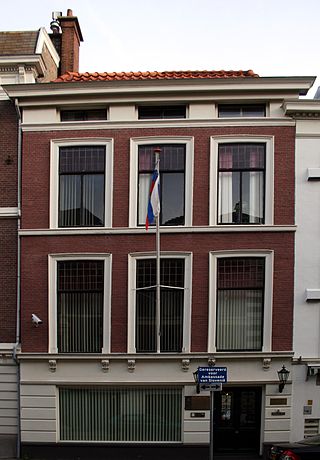
Since Slovenia declared independence in 1991, its Governments have underscored their commitment to improving cooperation with neighbouring countries and actively contributing to international efforts aimed at bringing stability to Southeast Europe. Resource limitations have nevertheless been a problem hindering the efficiency of the Slovenian diplomacy. In the 1990s, foreign relations, especially with Italy, Austria and Croatia, triggered internal political controversies. In the last eight years, however, a wide consensus has been reached among the vast majority of Slovenian political parties to jointly work in the improvement of the country's diplomatic infrastructure and to avoid politicizing the foreign relations by turning them into an issue of internal political debates.

Franjo Tuđman was a Croatian politician and historian who became the first president of Croatia, from 1990 until his death. He served following the country's independence from Yugoslavia. Tuđman also was the ninth and last president of the Presidency of SR Croatia from May to July 1990.
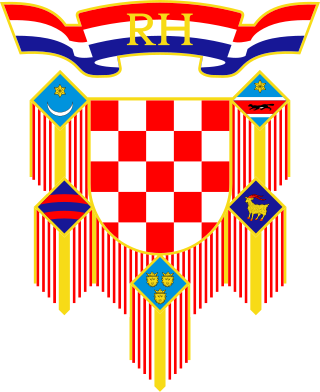
The president of Croatia, officially the president of the Republic of Croatia, is the head of state, commander-in-chief of the military and chief representative of the Republic of Croatia both within the country and abroad. The president is the holder of the highest office in Croatia. However, the president is not the head of the executive branch as Croatia has a parliamentary system in which the holder of the post of prime minister is the most powerful person within the country's constitutional framework and everyday politics.
Foreign relations of Serbia are formulated and executed by the Government of Serbia through its Ministry of Foreign Affairs. Serbia established diplomatic relations with most world nations – 188 states in total – starting with the United Kingdom (1837) and ending most recently with Guyana (2024). Serbia has friendly relations with following neighboring countries: Montenegro, North Macedonia, Romania, and Hungary. It maintains colder, more tense relations with Albania and Croatia and to a lesser degree with Bosnia and Herzegovina and Bulgaria due to historic nation-building conflict and differing political ideologies.
Croatia held an independence referendum on 19 May 1991, following the Croatian parliamentary elections of 1990 and the rise of ethnic tensions that led to the breakup of Yugoslavia. With 83 percent turnout, voters approved the referendum, with 93 percent in favor of independence. Subsequently, Croatia declared independence and the dissolution of its association with Yugoslavia on 25 June 1991, but it introduced a three-month moratorium on the decision when urged to do so by the European Community and the Conference on Security and Cooperation in Europe through the Brioni Agreement. The war in Croatia escalated during the moratorium, and on 8 October 1991, the Croatian Parliament severed all remaining ties with Yugoslavia. In 1992, the countries of the European Economic Community granted Croatia diplomatic recognition and Croatia was admitted to the United Nations.

Widespread protests and riots in Serbia and North Kosovo followed the proclamation of independence by the Republic of Kosovo on February 17, 2008. Protests were also held by Serbs in Bosnia and Herzegovina and Montenegro.
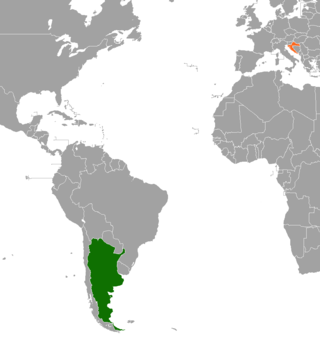
Argentina and Croatia both enjoy friendly relations, the importance of which centers on the history of Croatian migration to Argentina. There is approximately a community of 250,000 Argentines of Croatian descent. Both nations are members of the United Nations.
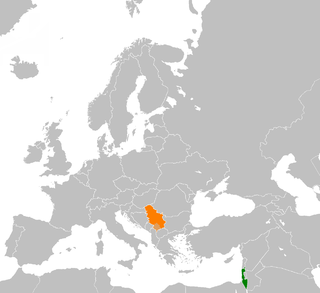
Israel and Serbia maintain diplomatic relations established between Israel and SFR Yugoslavia in 1948.

Foreign relations between Croatia and Serbia are bound together by shared history, cultural ties and geography. The two states established diplomatic relations in 1996, following the dissolution of Yugoslavia, the Croatian War of Independence and the independence of Croatia. Modern diplomatic relations are functional but cool, stemming from historic nation-building conflict and divergent political ideologies. Their relationship holds geopolitical importance in Southeast Europe given their economic influence in the region.

The nations of Mexico and Serbia originally established diplomatic relations in 1946 when Serbia was part of Yugoslavia. Since the dissolution of Yugoslavia, both countries have continuously maintained diplomatic relations. Both nations were founding members of the Group of 77 and the United Nations.

Relations between Serbia and the Turkey were first established in 1879, when Serbia was a principality. Both countries are full members of the Council of Europe, the Organization for Security and Co-operation in Europe (OSCE), the Central European Free Trade Agreement (CEFTA) and the Organization of the Black Sea Economic Cooperation (BSEC).

Full diplomatic relations between Croatia and Israel were established on April 9, 1997 following Croatia's independence from SFR Yugoslavia. Croatia has an embassy in Tel Aviv and honorary consulates in Ashdod, Caesarea, Jerusalem and Kfar Shmaryahu. Israel has an embassy in Zagreb. Relations between the two countries are described as friendly and highly cooperative. In recent years, Croatia and Israel have intensified bilateral relations and defence and security cooperation. Croatia is one of the countries Israel occasionally turns to inside the EU to advocate on its behalf and it generally abstains or votes with Israel on key EU votes at the UN. Israeli president Reuven Rivlin described Croatia in 2019 as "Israel's strong ally in the EU, the UN and other multilateral organizations."

North Macedonia–Serbia relations are bilateral relations between the Republic of North Macedonia and the Republic of Serbia. A 2022 poll conducted found that the citizens of North Macedonia consider Serbia to be their friendliest state.
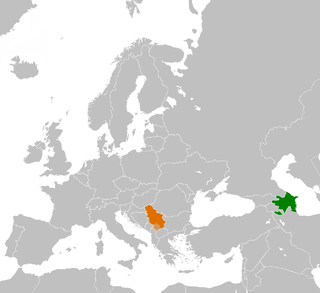
Azerbaijan and Serbia maintain diplomatic relations established between Azerbaijan and the Federal Republic of Yugoslavia in 1997.
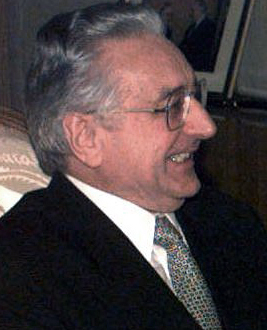
The independence of Croatia was a process started with the changes in the political system and the constitutional changes in 1990 that transformed the Socialist Republic of Croatia into the Republic of Croatia, which in turn proclaimed the Christmas Constitution, and held the 1991 Croatian independence referendum.

Darko Hudelist is a Croatian journalist, non-fiction writer and researcher of contemporary history.
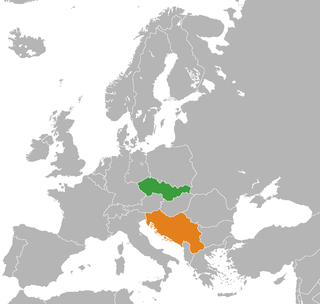
Czechoslovakia–Yugoslavia relations were historical foreign relations between Czechoslovakia and Yugoslavia, both of which are now-defunct states. Czechoslovakia and the Kingdom of Serbs, Croats and Slovenes were both created as union states of smaller Slavic ethnic groups. Both were created after the dissolution of Austria-Hungary, itself a multinational empire unable to appease its Slavic populations or implement a trialist reform in its final years.

The Embassy of the United States in Belgrade is the diplomatic mission of the United States of America in Serbia. Serbia, being at a crucial geographic and strategic juncture in the Balkans, has maintained its significance to U.S. foreign policy.
















